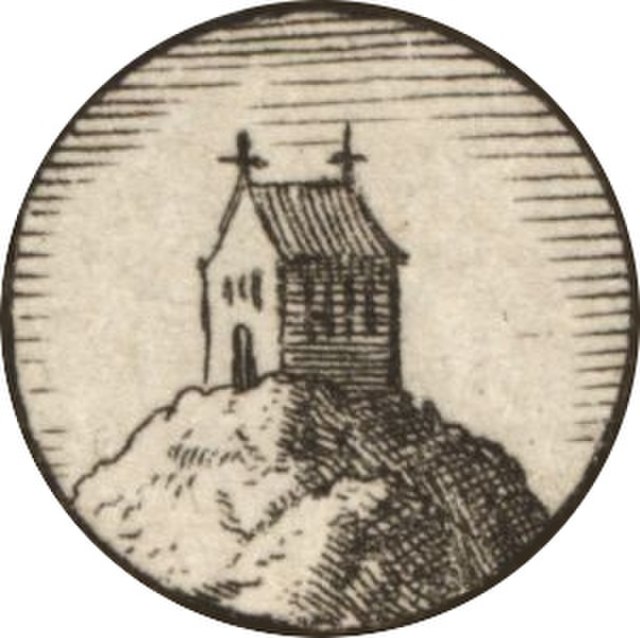In ecclesiology, the Christian Church is what different Christian denominations conceive of as being the true body of Christians or the original institution established by Jesus Christ. "Christian Church" has also been used in academia as a synonym for Christianity, despite the fact that it is composed of multiple churches or denominations, many of which hold a doctrinal claim of being the "one true church" to the exclusion of the others.
Medieval illustration of the ecclesia from the Hortus deliciarum of Herrad of Landsberg (12th century)
An Eastern icon depicting the Descent of the Holy Spirit. The date of Pentecost is considered the "Birthday of the Church".
An icon depicting Constantine I, accompanied by the bishops of the First Council of Nicaea (325), holding the Niceno–Constantinopolitan Creed of 381.
The Church is the congregation of saints, in which the Gospel is rightly taught and the Sacraments are rightly administered. –Augsburg Confession
A Christian denomination is a distinct religious body within Christianity that comprises all church congregations of the same kind, identifiable by traits such as a name, particular history, organization, leadership, theological doctrine, worship style and, sometimes, a founder. It is a secular and neutral term, generally used to denote any established Christian church. Unlike a cult or sect, a denomination is usually seen as part of the Christian religious mainstream. Most Christian denominations refer to themselves as churches, whereas some newer ones tend to interchangeably use the terms churches, assemblies, fellowships, etc. Divisions between one group and another are defined by authority and doctrine; issues such as the nature of Jesus, the authority of apostolic succession, biblical hermeneutics, theology, ecclesiology, eschatology, and papal primacy may separate one denomination from another. Groups of denominations—often sharing broadly similar beliefs, practices, and historical ties—are sometimes known as "branches of Christianity". These branches differ in many ways, especially through differences in practices and belief.

The front door of All Saints' Church in Wittenberg, Germany, where Martin Luther nailed his Ninety-five Theses on 31st October 1517, sparking the Reformation
A 6th-century Nestorian church, St. John the Arab, in the Assyrian village of Geramon




